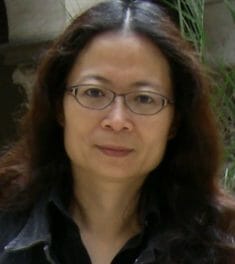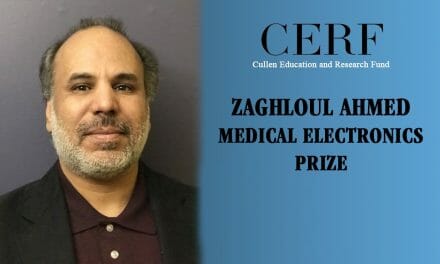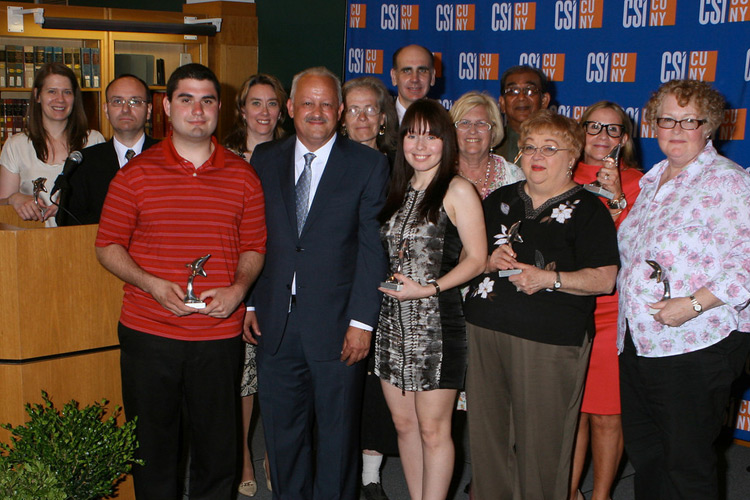Bang Geul Han, CSI Associate Professor of Media Culture and Barbara Montero, CSI Professor of Philosophy and member of the faculty of The Graduate Center, CUNY, have been selected as Guggenheim Fellows. The fellowships typically run from six to 12 months.
Han, an interdisciplinary artist working across video, performance, and code, noted that she is “elated and honored. The list of recipients contains so many amazing people – I feel humbled to be in the same company. I’m also very much indebted to those who wrote letters on my behalf as part of the submission process.”
During her fellowship, Han said that she’ll be “working on a new interdisciplinary art project consisting of an experimental tapestry, electronic sculpture, and live events in the form of public panel discussions. The project explores the gaps and incongruities within understandings and perceptions of private liberties/bodily autonomy and public interdependence/community agency as experienced through political realities concerning women’s reproductive rights and gun ownership.”
Montero, whose research is mainly focused on one or the other of two very different notions of body: body as the physical or material basis of everything, and body as the moving, breathing, flesh and blood instrument that we use when we run, walk, or dance, commented, “I feel ecstatic that my work was recognized as worthy of support.”
Her project will involve “writing a draft of a book, entitled Things that Matter: Actual-World Metaphysics and the Mind-Body Problem. It is currently under contract with Oxford University Press. My goal is to methodically complete a full draft. After that’s done, it’s pure pleasure for me.”
The Guggenheim Website explains, “Chosen through a rigorous application and peer review process from a pool of almost 3,000 applicants, the Class of 2024 Guggenheim Fellows was tapped on the basis of prior career achievement and exceptional promise. As established in 1925 by founder Senator Simon Guggenheim, each fellow receives a monetary stipend to pursue independent work at the highest level under “the freest possible conditions.” In all, 52 scholarly disciplines and artistic fields, 84 academic institutions, 38 US states and the District of Columbia, and four Canadian provinces are represented in the 2024 class, who range in age from 28 to 89.”
By Terry Mares



![[video] Women’s History Week: Staten Island Businesswomen Become Mentors to Young Females](https://csitoday.com/wp-content/uploads/2012/03/women_business_mentors.jpg)













